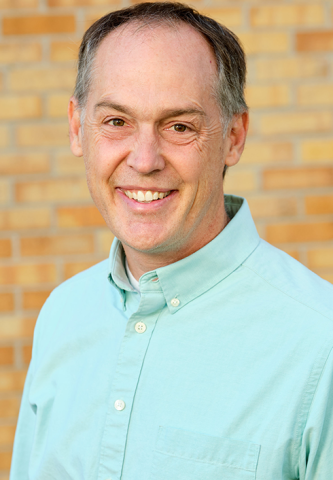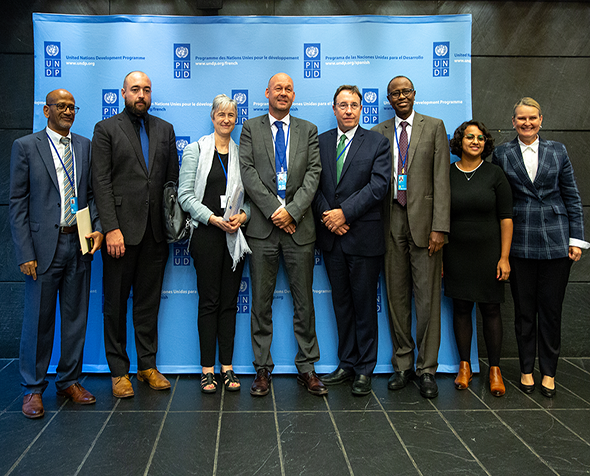University of Denver Researchers and Students Making an Impact in Colorado’s Court System

Within the Graduate School of Professional Psychology (GSPP) at the University of Denver, students and faculty work together to advance the field of forensic psychology. Through research, mental health evaluations and expert testimony to the courts, they are helping create outcomes that benefit individuals and communities.
“Forensic psychology is the intersection between mental health and the law,” says Neil Gowensmith, associate professor in GSPP’s master’s in forensic psychology program.
The meeting of psychology and law often calls to mind an array of pop culture and news references: the psychological evaluators on “CSI”; the Behavioral Science Unit on Netflix’s “Mindhunter”; and, of course, high-profile insanity defense cases. Think Jeffrey Dahmer, the serial killer who murdered and dismembered 17 men and boys between 1978 and 1991.
“That’s a sliver of forensic psychology, and those things do happen,” Gowensmith says. “We consult with police and law enforcement to try and help figure out why crimes are being treated the way they are. And we certainly get on the stand and are asked to provide our opinions on a person’s sanity or competency — those things do happen, but never like they do on TV.”
Instead, the work of Denver FIRST (Forensic Institute for Research, Service and Training) focuses on supporting the court system with expertise to help identify the right treatment and recourse for those with mental health challenges.
“Our field, our courts and our governments know that the current approaches to mental health aren’t working well — often these forensic systems are inefficient,” Gowensmith says. “They are unjust. People who are waiting in jails for services — it can do some pretty terrible things. When they’re experiencing symptoms of mental illness, they can injure themselves or assault others. And what they really need is treatment.”
Denver FIRST was created in 2014 to help GSPP respond to requests from around Colorado and surrounding states to address forensic mental health. At any given time, there are at least four faculty members and upwards of 15 master's students working with community organizations and clients on forensic psychology projects.
One of those community organizations is Aurora Sustained, a new program that invites a trio of students to the Aurora municipal jail four days a week. The students evaluate detainees for behavioral and mental health issues before they see a judge. The result is that some detainees can then access appropriate treatment that would otherwise be difficult for them to get alone and outside of the system.
Pioneering research is also part of the institute’s work. Every year, the program hosts a postdoctoral fellow who pursues research above and beyond to the ongoing studies by faculty, staff and students. This year’s fellow is Cassandra Bailey, who graduated with a PhD from Sam Houston State and works with Denver FIRST and students to help further the field.
In addition to the research she conducts on the immigration court for her fellowship, she also collaborates with students, helping them publish research on areas they find most interesting. “I do forensic research and then I also do forensic evaluations, mainly competency to stand trial. That’s one of the things that makes Denver FIRST so special,” she says. “In addition to the clinical work, you also get a chance to be a junior faculty — [to] do research and work with students and collaborate with them. Nowhere else really offers that.”
In February, the University was awarded R1 classification by the Carnegie Classification of Institutions of Higher Education, joining the ranks of other universities conducting the highest levels of research activity. DU is now the only private R1 university in the Rocky Mountain region. Both Gowensmith and Bailey see this as a big step for the program and the University.
“With R1 we can increase the scale and scope of our research,” Gowensmith says. “It does increase our likelihood for success in getting grant funding, but I think it also attracts private funders and donors who see the visibility of the University increased a bit with R1. And it increases our voice at the table when we’re working and developing partnerships with other colleagues. It just puts us in a different seat at that table.”
Bailey sees the move to R1 status as a big boost for students and their research. “Research does go more smoothly, obviously when you have funds, but there’s plenty of research opportunities, especially when you’re working at an institution that supports research. It allows for things like full access to Qualtrics and to all of the different journals. It’s a lot easier to do research when you’re at an institution like that.”
In the end, though, it’s about helping the justice system and addressing the inequities when a defendant appears in front of the court. Says Gowensmith: “Our work really is built on science and on social justice. We’re trying to answer the questions the court has. We can help the court understand the person’s criminal accountability, and their public safety concerns, but then also balance that with the person’s mental health needs.”









